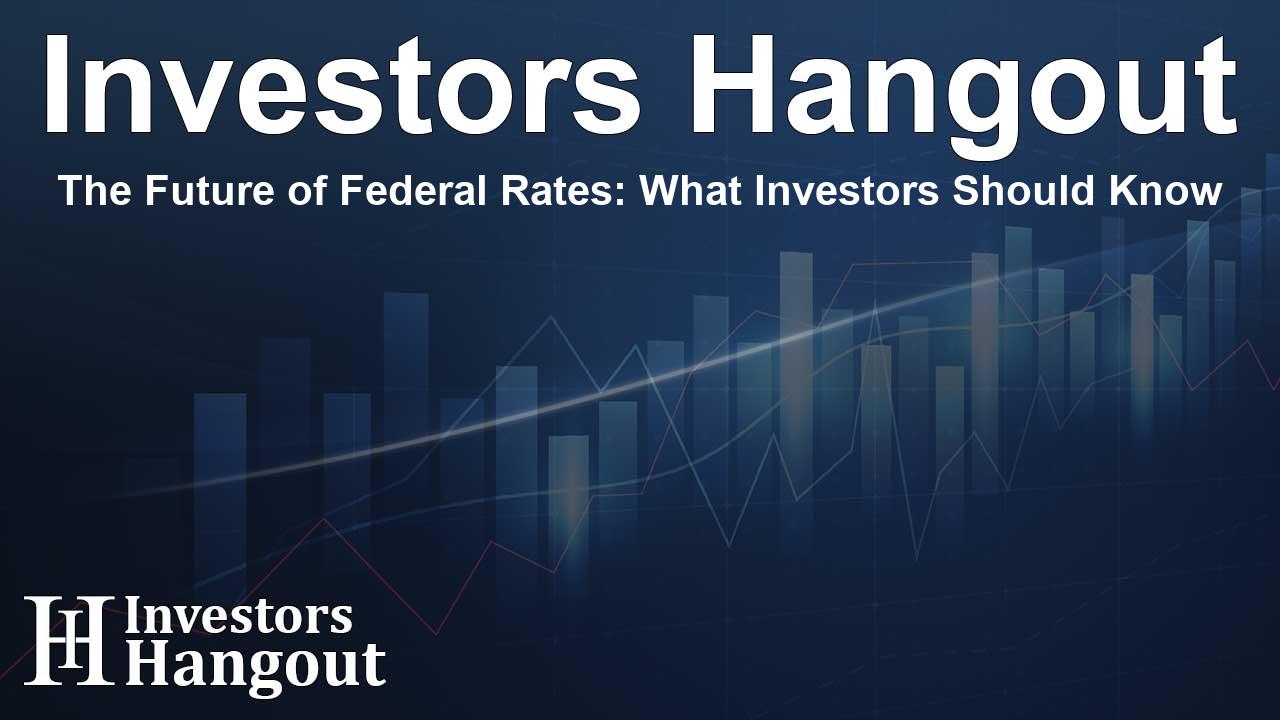The Future of Federal Rates: What Investors Should Know

Understanding the Federal Reserve's Current Stance
Recently, stocks experienced a significant rebound from last week's dips, highlighted by the S&P 500, which saw an impressive increase of 1.7%. This week presents a condensed trading period as US markets will close on Thursday and operate on a half-day schedule on Friday. Traders can anticipate a wealth of economic data, including crucial Fed Minutes on Tuesday afternoon and reports related to GDP, PCE, and Jobless claims scheduled for Wednesday.
The Fed's Strategy Shifts
The prevailing sentiment indicates that the Federal Reserve is stepping back from its previous urgent need to reduce interest rates rapidly. The stance now appears to reflect a slower-paced approach, suggesting that the monetary policy isn't as stringent as it once was. Current inflation swap pricing points to a real policy rate around 1.85%, a considerable easing of 180 basis points compared to September.
Interpreting the Fed's Rate Cuts
Notably, even though the Fed has implemented a cut of only 75 basis points, the 1-year inflation swap has surged since the cuts commenced. This development raises concerns about the limited room left for additional rate cuts, contingent on how inflation trends in the future.
Inflation Expectations on the Rise
A recent report from the University of Michigan highlights rising inflation expectations, with figures hitting 3.2% for the 5 to 10-year outlook in November. This figure is situated at the upper end of historical inflation rates over the last three decades, indicating growing concerns about future inflation.
The Balance of Fed Policy and GDP Growth
At this juncture, the Fed's policy appears to be in alignment with nominal GDP growth, factoring in inflation and productivity. Maintaining such policies may keep the marketplace stable, whereas any further easing could potentially lead to an overly loose monetary environment.
Market Implications of New Treasury Policies
As we move forward, a key consideration is the impact of the upcoming Treasury Secretary's policies on market dynamics. Observers had noted previous changes made by Treasury Secretary Yellen, particularly regarding the issuance pace of Treasury bills, which has influenced fiscal conditions since October 2023.
Understanding Treasury Issuance Trends
Current data reveals a substantial uptick in bill issuance alongside a decline in long-duration issuance. The market's future course will largely depend on whether the new Treasury Secretary adjusts issuance back to historically higher levels.
Looking Ahead: Quarterly Refunding Announcements
Market participants should closely monitor upcoming announcements related to quarterly refunding, expected at the end of January or beginning of February. Any comments from the new Secretary about government issuance strategies prior to this could have profound implications for the stock market.
Frequently Asked Questions
What does the Fed's current stance imply for interest rates?
The Fed is now adopting a slower approach toward interest rates, moving away from rapid cuts and indicating that its policy is more neutral.
How might inflation impact future Fed decisions?
With rising inflation expectations, the Fed's ability to further cut rates could be limited, as it must balance between stimulating growth and controlling inflation.
What is the significance of Treasury Secretary's policies?
The new Treasury Secretary's approach towards Treasury issuance could significantly affect financial conditions and the stock market.
What should investors watch for in early 2024?
Investors should pay attention to the quarterly refunding announcements and any early comments from the Treasury Secretary on issuance strategies.
How do current economic indicators affect stock prices?
Changes in economic indicators, including inflation and Fed policies, directly influence investor sentiment and stock prices, creating potential volatility.
About Investors Hangout
Investors Hangout is a leading online stock forum for financial discussion and learning, offering a wide range of free tools and resources. It draws in traders of all levels, who exchange market knowledge, investigate trading tactics, and keep an eye on industry developments in real time. Featuring financial articles, stock message boards, quotes, charts, company profiles, and live news updates. Through cooperative learning and a wealth of informational resources, it helps users from novices creating their first portfolios to experts honing their techniques. Join Investors Hangout today: https://investorshangout.com/
Disclaimer: The content of this article is solely for general informational purposes only; it does not represent legal, financial, or investment advice. Investors Hangout does not offer financial advice; the author is not a licensed financial advisor. Consult a qualified advisor before making any financial or investment decisions based on this article. The author's interpretation of publicly available data shapes the opinions presented here; as a result, they should not be taken as advice to purchase, sell, or hold any securities mentioned or any other investments. The author does not guarantee the accuracy, completeness, or timeliness of any material, providing it "as is." Information and market conditions may change; past performance is not indicative of future outcomes. If any of the material offered here is inaccurate, please contact us for corrections.